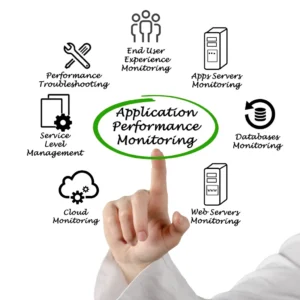
Mastering the Symphony
Data Management's Key Role in Intelligent Process Automation (IPA)
Embarking on the dynamic frontier of technological innovation, the convergence of Data Management and Intelligent Process Automation (IPA) promises a paradigm shift in how organizations operate.
As we delve into this transformative landscape, the intricate dance between meticulous data management and the prowess of automation unveils unparalleled opportunities.
Picture a future where data isn’t just information but a catalyst propelling businesses into realms of unprecedented efficiency and strategic foresight.
In the pulsating heart of IPA, Data Management becomes the orchestrator, dictating the rhythm of seamless processes, robust security, and ethical automation practices.
Join us on this exhilarating journey where data isn’t merely a commodity but the fabric woven into the tapestry of intelligent business operations.
From precision in extraction to safeguarding privacy, we unravel the thrilling narrative of how adept Data Management fuels the engine of Intelligent Process Automation, ushering us into a realm where the fusion of data and automation unlocks untold possibilities.
Data Quality Assurance
Elevating Efficiency: Data Quality Assurance in Intelligent Process Automation (IPA)
In the realm of Data Management in Intelligent Process Automation (IPA), Data Quality Assurance (DQA) emerges as a critical component. DQA focuses on establishing robust protocols to ensure the accuracy and reliability of data, a pivotal element for successful IPA implementation.
Implementing data validation techniques stands as a cornerstone in this process. By employing stringent validation measures, organizations can mitigate errors and discrepancies, ensuring the integrity of the data feeding into automated processes. This enhances decision-making and bolsters the overall efficiency of IPA systems.
Continuous monitoring plays a vital role in sustaining high data quality levels. Regular assessments and feedback loops enable swift identification and rectification of anomalies, maintaining data accuracy over time. Moreover, this iterative approach aligns with the dynamic nature of business processes, ensuring adaptability to changing requirements.
Organizations must prioritize DQA to foster reliable, error-free data in the dynamic landscape of Data Management in IPA. By adhering to established protocols, implementing validation techniques, and embracing continuous improvement, businesses can optimize the performance of their Intelligent Process Automation systems.
Data Security Protocols
Safeguarding Success: Data Security Protocols in Intelligent Process Automation (IPA)
Data Security Protocols within Data Management in Intelligent Process Automation (IPA) are paramount. Encryption methodologies serve as the first line of defence, ensuring sensitive data remains confidential and protected from unauthorized access.
Robust access controls and user authentication mechanisms bolster security further. By strictly managing who can access what information, organizations fortify their data against potential breaches, maintaining the integrity of automated processes.
It is both a legal obligation and a strategic necessity to comply with data protection and privacy regulations. Adhering to industry standards ensures that IPA implementations align with the highest data protection benchmarks, fostering trust among stakeholders and avoiding regulatory pitfalls.
In the intricate landscape of Data Management in IPA, prioritizing data security is non-negotiable. Through encryption, access controls, and regulatory compliance, organizations fortify their automated processes, ensuring the confidentiality and integrity of sensitive information.
Data Governance Frameworks
Nurturing Precision: Data Governance Frameworks in Intelligent Process Automation (IPA)
Within Data Management in Intelligent Process Automation (IPA), robust Data Governance Frameworks play a pivotal role. Developing clear policies for data management and usage sets the foundation for a streamlined and practical approach.
Defining roles and responsibilities for data stewardship ensures accountability and transparency. This clarification enables individuals in an organization to manage and preserve data quality and integrity, aligning with IPA objectives.
Establishing data governance committees brings together key stakeholders to make informed decisions. These committees are responsible for ensuring that data is treated as a valuable asset and is protected accordingly.
In the intricate landscape of Data Management in IPA, a well-structured Data Governance Framework is indispensable. By fostering policies, defining roles, and forming governance committees, organizations lay the groundwork for efficient and responsible data management within Intelligent Process Automation.
Data Integration Strategies
Unifying Efficiency: Data Integration Strategies in Intelligent Process Automation (IPA)
Data Management in Intelligent Process Automation (IPA) hinges on effective Data Integration Strategies. Seamless integration across systems facilitates a cohesive flow of information, eliminating silos and enhancing overall operational efficiency.
Ensuring consistency and accuracy in integrated data is paramount. Organizations must establish validation and quality assurance protocols to maintain the reliability of information circulating through automated processes.
Addressing challenges in data mapping and transformation is a critical aspect. Strategically overcoming discrepancies in format and structure ensures that data is integrated seamlessly and aligned with the specific requirements of diverse systems.
In the practical realm of Data Management in IPA, success lies in adept Data Integration Strategies. By emphasizing seamless integration, ensuring data accuracy, and overcoming mapping challenges, organizations can unlock the full potential of Intelligent Process Automation, fostering a unified and efficient data ecosystem.
Master Data Management (MDM)
Orchestrating Harmony: Master Data Management (MDM) in Intelligent Process Automation (IPA)
In the landscape of Data Management in Intelligent Process Automation (IPA), Master Data Management (MDM) emerges as a linchpin. MDM aims to create a single, authoritative source for critical data entities, providing a unified and consistent foundation for automated processes.
Implementing MDM tools and practices is imperative. These tools streamline data governance, ensuring crucial information remains accurate, reliable, and synchronized. This coherence is essential for effective decision-making within the scope of IPA.
Data synchronization and reconciliation strategies play a pivotal role in maintaining data integrity. Timely and precise synchronization mitigates inconsistencies, while reconciliation strategies address disparities, ensuring that the data remains coherent and trustworthy.
In the practical landscape of Data Management in IPA, the success of automated processes hinges on the meticulous application of Master Data Management principles. By creating a single source, employing MDM tools, and implementing synchronization and reconciliation strategies, organizations pave the way for streamlined and reliable Intelligent Process Automation.
Data Extraction and Transformation
Streamlining Operations: Data Extraction and Transformation in Intelligent Process Automation (IPA)
In the realm of Data Management in Intelligent Process Automation (IPA), mastering Data Extraction and Transformation is pivotal. Techniques for extracting data from diverse sources set the foundation for informed decision-making.
Transforming raw data into usable formats is crucial for efficiency. This process ensures that information is standardized, making it accessible and applicable across automated processes within the scope of IPA.
Automating data extraction and transformation processes optimizes workflows. Automating processes improves efficiency and accuracy, enabling organizations to maximize their data’s value.
In the practical landscape of Data Management in IPA, success lies in adept Data Extraction and Transformation. By mastering extraction techniques, transforming raw data, and embracing automation, organizations can streamline operations and unleash the full potential of Intelligent Process Automation.
Data Lifecycle Management
Nurturing Longevity: Data Lifecycle Management in Intelligent Process Automation (IPA)
Data Lifecycle Management is a cornerstone within Data Management in Intelligent Process Automation (IPA). It encompasses comprehensive handling from data creation to archival, ensuring a systematic and organized approach.
Establishing protocols for data retention and deletion is imperative. Clear guidelines dictate data lifespan, preventing clutter and ensuring only relevant information persists, aligning with IPA goals.
Ensuring data relevance and compliance over time is a continuous effort. Regular assessments and updates guarantee that data remains aligned with organizational objectives and adheres to evolving regulatory standards, fostering long-term reliability.
In the practical landscape of Data Management in IPA, adept Data Lifecycle Management is critical. By embracing comprehensive handling, establishing retention protocols, and ensuring ongoing relevance and compliance, organizations foster a robust foundation for Intelligent Process Automation success.
Data Privacy Measures
Upholding Integrity: Data Privacy Measures in Intelligent Process Automation (IPA)
Data Management in Intelligent Process Automation (IPA) demands rigorous Data Privacy Measures. Implementation includes safeguarding sensitive data, prioritizing user consent, and ensuring transparent data handling practices.
It is imperative to comply with data privacy regulations such as GDPR, as there is no room for negotiation. Organizations must align with legal frameworks, guaranteeing that data processing meets stringent standards and safeguards user rights.
User consent and transparency are foundational. Clearly articulating data handling practices and obtaining user consent establishes trust and upholds ethical standards, fostering a secure data environment.
In the practical landscape of Data Management in IPA, prioritizing Data Privacy Measures is imperative. Organizations fortify their Intelligent Process Automation endeavours with integrity and user trust by safeguarding sensitive data, ensuring regulatory compliance, and championing transparency.
Data Auditing and Monitoring
Fortifying Precision: Data Auditing and Monitoring in Intelligent Process Automation (IPA)
Data Management in Intelligent Process Automation (IPA) hinges on robust Data Auditing and Monitoring practices. Regular audits ensure data accuracy and compliance with established standards, forming the foundation for trustworthy automation.
Real-time monitoring of data flows and access is indispensable. Continuous monitoring lets organizations quickly detect and respond to potential threats or breaches.
Establishing protocols for addressing data discrepancies and anomalies is a proactive approach. With predefined procedures, organizations can efficiently rectify issues, maintaining data integrity and sustaining the efficacy of IPA processes.
In the practical landscape of Data Management in IPA, prioritizing Data Auditing and Monitoring is paramount. By conducting regular audits, implementing real-time surveillance, and addressing discrepancies promptly, organizations fortify their automated processes with a shield of precision and reliability.
Data Ethics and Bias Mitigation
Upholding Integrity: Data Ethics and Bias Mitigation in Intelligent Process Automation (IPA)
In Data Management for Intelligent Process Automation (IPA), prioritizing Data Ethics and Bias Mitigation is critical. Establishing protocols for identifying and mitigating biases is essential to ensure fair and unbiased automated decision-making.
Ensuring the ethical use of data is a foundational principle. Organizations must uphold ethical standards in data handling to maintain trust and integrity, especially in the context of automated processes within IPA.
Transparency in data-driven decision-making is imperative.
Clear communication of decision-making fosters trust, reduces biases and ensures the ethical use of intelligent automation.
In the practical landscape of Data Management in IPA, embracing Data Ethics and Bias Mitigation is non-negotiable. Organizations foster an environment of integrity and responsible data-driven automation by implementing bias identification protocols, upholding ethical standards, and prioritizing transparency.
Conclusion
In the ever-advancing landscape of technology, Data Management in Intelligent Process Automation (IPA) emerges as the linchpin for organizational success. As organizations navigate the complexities of automation, a strategic approach to data management becomes paramount.
The foundational pillars of data quality assurance, security protocols, integration strategies, lifecycle management, privacy measures, and ethical considerations collectively form the bedrock of effective IPA implementation.
Data, the lifeblood of automation, demands meticulous care from inception to archival. Robust governance frameworks and comprehensive extraction, transformation, and integration strategies lay the groundwork for seamless processes. Simultaneously, stringent security measures and ethical considerations ensure the responsible use of data, mitigating biases and upholding transparency in decision-making.
The journey through Data Management in IPA underscores the need for a holistic approach. Successful organizations prioritize accuracy, security, and compliance and champion ethical practices, creating a symbiotic relationship between data and automation.
With the constantly evolving digital landscape, those skilled in managing data in Intelligent Process Automation are well-positioned to succeed. They will utilize data not only as a resource but also as a strategic asset, which will help them advance into the future of intelligent, automated business processes.
Related Articles
- Choosing the Right Automation Tool in 7 Steps
- A 9-Step Guide to IPA Implementation: Energise Your Operations
- Navigating the Roadblocks of IPA – The Top 9 Challenges
- AI in Intelligent Process Automation – Unleash the Power of AI
- 9 IPA Examples in Small-Scale Industries
- Power of Intelligent Business Process Automation – Efficiency
- AI Business Process Management: Unleashing the Power
- Business Process Management with AI Integration
- AI for Reengineering Business Processes
- Hyperautomation: Redefining BPM with AI
- The Role of AI in Business Process Modelling
- AI-driven Customer Onboarding – Unleash the Power of AI
- Effective Process mapping in Intelligent Process Automation
- Intelligent Process Automation Adoption – The Best Strategy Guide
- TechInfra in IPA: A Comprehensive Guide
- Elevating Intelligent Automation with Continuous Improvement
- Comprehensive Approach to Cost-Benefit Analysis in IPA
- Vendor Selection in IPA – Comprehensive Guide
- Implementing Agile in Intelligent Process Automation (IPA)
- Scalability and Integration in Intelligent Process Automation
- Cognitive Automation in IPA: Innovating Ethical Efficiency
- Mastering Symphony: Bot Development in IPA Unveiled
- UI/UX Mastery in IPA: Elevating Automation Experiences
- Compliance and Security in IPA – A Guide Ensuring Trust
- Impact of Performance Monitoring and Analytics in IPA
- Driving Success: Data Management in IPA
- Crucial Role: Documentation in IPA Triumph
- Optimizing IPA – Continuous Improvement Strategies






























